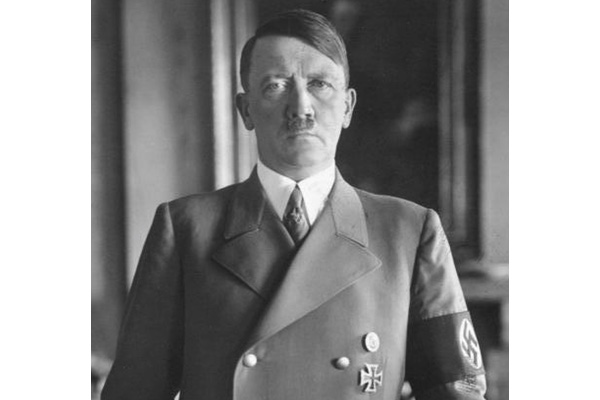Hitler's Plan to Attack America

Editor's Note (1999): In his new book, A Republic, Not an Empire, Patrick Buchanan claims that as of mid-1940 Hitler "was driven by a traditional German policy of Drang nach Osten, the drive to the East." He did not want war with the West, insists Buchanan. (Pp. 268-69.) Why then did Hitler, following Pearl Harbor, declare war on the United States? Buchanan insists this was the irrational act of a madman. In fact, insists Gerhard Weinberg, it was consistent with an objective Hitler had long nourished.
It had been an assumption of Hitler's since the 1920s that Germany would at some point fight the United States. As early as the summer of 1928 he asserted in his second book (not published until I did it for him in 1961) that strengthening and preparing Germany for war with the United States was one of the tasks of the National Socialist movement. Both because his aims for Germany's future entailed an unlimited expansionism of global proportions and because he thought of the United States as a country which with its population and size might at some time constitute a challenge to German domination of the globe, a war with the United States had long been part of the future he envisioned for Germany either during his own rule of it or thereafter.
During the years of his chancellorship before 1939, German policies designed to implement the project of a war with the United States had been conditioned by two factors: belief in the truth in the stab-in-the-back legend on the one hand and the practical problems of engaging American military power on the other. The belief in the concept that Germany had lost the First World War because of the collapse at home -- the stab in the back of the German army -- rather than defeat at the front automatically carried with it a converse of enormous significance which has generally been ignored. It made the military role of the United States in that conflict into a legend. Believing that the German army had not been beaten in the fighting, Hitler and many others in the country disbelieved that it had been American participation which had enabled the Western Powers to hold on in 1918 and then move toward victory over Germany. They perceived that to be a foolish fable, not a reasonable explication of the events of that year. A solid German home front, which National Socialism would ensure, could preclude defeat next time; the problem of fighting the United States was not that the inherently weak and divided Americans could create, field, and support effective fighting forces, but rather that they were so far away and that the intervening ocean could be blocked by a large American fleet. Here were the practical problems of fighting America: distance and the size of the American navy.
To overcome these practical obstacles Hitler built up the German navy and began work on a long-range bomber -- the notorious Amerika Bomber -- which would be capable of flying to New York and back without refueling. Although the bomber proved difficult to construct, Hitler embarked on a crash building program of superbattleships promptly after the defeat of France. In addition, he began accumulating air and sea bases on the Atlantic coast to facilitate attacks on the United States. In April 1941 Hitler secretly pledged that he would join Japan in a war on the United States. This was critical. Only if Japan declared war would Germany follow.
As long as Germany had to face the United States essentially by herself, she needed time to build her own blue-water navy; it therefore made sense to postpone hostilities with the Americans until Germany had been able to remedy this deficiency. If, on the other hand, Japan would come into the war on Germany's side, then that problem was automatically solved.
Hitler was caught out of town at the time of Pearl Harbor and had to get back to Berlin and summon the Reichstag to acclaim war. His great worry, and that of his foreign minister, was that the Americans might get their declaration of war in ahead of his own. As Joachim von Ribbentrop explained it, "A great power does not allow itself to be declared war upon; it declares war on others." He did not need to lose much sleep; the Roosevelt administration was quite willing to let the Germans take the lead. Just to make sure, however, that hostilities started immediately, Hitler had already issued orders to his navy, straining at the leash since October 1939, to begin sinking American ships forthwith, even before the formalities of declaring war. Now that Germany had a big navy on its side (Japan's), there was no need to wait even an hour.
_____
This article is excerpted from Gerhard Weinberg's Germany, Hitler, and World War II (Cambridge University Press: 1995). It is reprinted with permission of the author and publisher and was reposted at TomPaine.com in 1999.